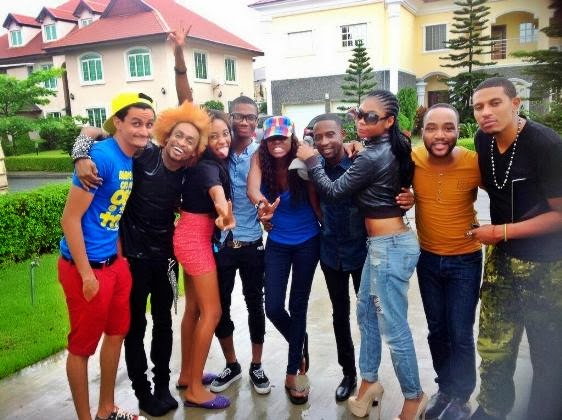
In contemporary history, leadership transcends the frontiers of one man ordering people around military-style. Leadership is about sacrifice, innovation, vision and ability to recognise that even the best of diamond was first coated with dirt and dust. Great leaders are therefore those who see opportunity in oppression, who turn adversity to advantage and those who see today what others will see tomorrow.
It took a life of risk and sacrifice in a moment of war for Americans to see the strong character of George Washington. Franklin Delano Roosevelt, confined to a wheel chair at middle age by polio, turned what others may consider an adversity to advantage. He became one of the greatest presidents of the United States, winning election for a record four times even on a wheel chair. He sacrificed his comfort to steer America out of the straits of the Great Depression.
Bring on the architect of modern Singapore, Lee Kuan Yew. Coming through the trauma of Second World War and the emotional bitterness of Japanese occupation and British domination, he sacrificially rallied his troop of young and resolute Singaporeans to birth a new nation with the full dignity of Singapore citizens restored.
Fashola
Fashola
It took the conscientious, conscious and selfless exertions of Martin Luther King Jnr and other Black activists for the world to witness a Black American president in the White House over four decades later. It is impossible to wade through the history of nations without finding bright dots and brilliant flashes of good leadership sometimes even in the midst of overly administrative tardiness.
In Europe, America, Asia and other climes, you find such leadership milestones in both the private and public sectors as blue chip chief executives, district heads, mayors, governors and heads of government. These are men and women who through innovations and visionary candour, wrought transformation in their stations. In Nigeria, we still find bright spots of purposeful leadership sparkling in the horizon like oasis in a famished desert.
You find them as local government chairmen, company executives, lawmakers and sundry public office holders. In this list of change-agents is Babatunde Raji Fashola, the governor of Lagos State who is easily accepted today among all political parties as the best-performing governor.
Fashola is a real outlier who during his working life in the private sector as a lawyer demonstrated a rare knack for excellence and professional enthusiasm garnished with uncommon humility. These have been the defining character traits of the Senior Advocate of Nigeria (SAN) who when he speaks reminds you that in spite of the culture of poverty of leadership in Nigeria, there are still men and women who have remained untainted by the miasma and putrefaction which embroider the garments of those in power.
Like all great leaders, Fashola has been consistent in character. He arrived at Lagos State Government House with a rich tool-kit laden with administrative dexterity, visionary élan and an imbued Jewish spirit complete with chutzpah, candour and unvarnished charisma. As governor of cosmopolitan Lagos, he wormed his way into the hearts of the people. His rich vein of people skills and unfeigned deployment of emotional intelligence stand him out as a puritan from the crowd of political jobbers and leadership jesters who daily crowd the nation’s political space.
He’s a man fated to success and it was no surprise that he emerged victorious in the 2007 gubernatorial election which thrust him into the centre stage of governance in his state. His trajectory from the private sector to the public arena and his seamless adaptation to life in the corridor of power owe so much to his social malleability and political flexibility.
In barely six years as governor of Lagos State, he has demonstrated without any pinch of doubt that good, qualitative leadership is still possible in a country widely perceived as destitute of such virtue. He is to Lagos State what Moses was to the Jews – a man ordained to set the captives free. Thus, guided by the invisible and sturdy hand of Providence, he has navigated Lagos out of the valley of gross darkness to the plains of socio-economic resurgence. A state once manacled to the tethers of indiscipline and a ready by-word for social disorder has joined the league of the world’s fastest developing cities. He has wrought exceptional transformation in the state even to the admiration and acclamation of his most acerbic critics.
He is the real Renaissance man. In Fashola, you wonder how a man can be so intelligent yet very humble; in him you see a mix of unassuming demeanour and intellectual opulence. And everywhere he goes, everything he does, he carries these virtues with him.
On Thursday in Lagos, Aka Ikenga, a pan-Igbo think-thank marked its silver jubilee with a public lecture delivered by His Lordship Rt. Rev Matthew Hassan Kukah, the Bishop of Catholic Diocese of Sokoto. Kukah, an activist who has successfully travelled through the contours of the podium and the pulpit was his vintage self as he engaged the audience with eclectic poignancy. He was blunt and forthright as he tried to unravel the latent dialectics that foreshadow the nation’s collective attempt to overawe the challenges thrown up by Nigeria’s variant of democracy.
Kukah took the audience through the challenges of democracy in Nigeria. He acknowledged the diversities and complexities of the Nigerian nation but argued that such diversity ought not to be a liability but a strength. In his words: “the greatness of any nation lies in its ability to manage diversity and be accommodating to strangers”. Kukah’s lecture resonated with the audience as he wondered if the Nigerian problem was just ethnicity, corruption or a function of ‘fundamental error of attribution’. He described Nigeria as a country which progresses in reverse order.
“Nigeria is a great country but it is hurting badly”. Yes, Nigeria hurts. It hurts the majority who feel erroneously profiled as power grabbers; it hurts the minorities who feel emasculated in the political space. It hurts the poor, the girl-child, the rural dwellers and even the urban drifters including the very rich. Everybody is hurting. The Hausa, Igbo, Yoruba and the multitude of minority entities. But most times, people hurt because they misconstrue what true nationhood is all about; they do not understand where they are coming from and where they are going and most times they hurt because they do not understand who their real enemy is.
A section of Ndigbo has been hurting. They are unhappy with Governor Fashola for ‘deporting’ a handful of their kinsmen from Lagos to the South East. Officials of Lagos State insist that those affected were not randomly picked from the streets and shipped home. They were men of no tangible means of livelihood who were rehabilitated and made to acquire some skills by the state. It was upon their graduation from vocational training that they were ferried home.
It was on the basis of this ‘hurt’ that Fashola mounted the rostrum after Kukah’s lecture. He prefaced his remarks with these words. “I do not have a problem with the Igbo and they know that. The largest herds of cattle I received during my father’s burial was from Ndigbo. They are my kindred and my people”.
“I have come here first to say thank you for the honour done to my family and the memory of my late father.
“I have also come here to make an explanation as to what happened. Some people who clearly do not understand the actions taken and words spoken are those I owe an explanation. I cannot take the Igbo for granted because we have built a relationship based on tolerance, mutual respect, love and trust. That relationship was built by our ancestors and I put a lot of value in that relationship.
“I offer an unreserved apology if the actions taken had been misunderstood. But I think the basic issue Aka Ikenga must address is why people feel compelled to migrate from one part of the country to the other? Is it the case that some lack the resources to develop or perhaps some parts are endowed with enormous resources but not adequately managed? How can development be so difficult from the zone that has produced people like Nnamdi Azikiwe, Alex Ekwueme, Ike Nwachukwu, among others? A day like this calls for deep reflection about issues of our loyalties. Are we more Igbo than Nigeria or we are more Nigeria than Igbo?”
A deafening ovation followed Fashola’s remarks not just for his forthrightness, show of courage to say it as it is but for his humility in apologizing to those who read the script wrongly. But the laudation for Fashola should not drown the squealing voice of his posers. Why is development difficult in the South East, South –South and the North? Has anybody ever wondered why Fashola has grown more grey hairs since becoming governor than all the governors in other places put together?
Leadership comes with its peculiar burden and responsibility. Lee Kuan Yew, in his personal account of how he salvaged Singapore from ruins gave insight into how he stayed up late thinking and strategizing; how he held several meetings in a day with diverse groups and people and how he invested his emotions into project Singapore to birth what is today one of the most flourishing nations in the world. The real issue is not for Ndigbo to vilify Fashola but to ask questions of their governors or other governors for that matter why they cannot create oasis of development in their respective states in spite of the abundant resources in such states.
· SOURCE
Former Miss World Agbani Darego looked stunning at the traditional
wedding of Daisy Danjuma’s son, Yuki Omenai, which took place today at
Eko Hotel & Suites in Lagos.
Angelo Collins arrived in Nigeria today to spend some time with his BBA
boo, Beverly Osu. Other BBA Housemates Bimp and Bassey are also in town.
They are here to attend Beverly Osu's birthday party which will hold
tonight at Aura Night Club. Check out more pics..

 Welcome to Justin Kingland's Blog News
Welcome to Justin Kingland's Blog News









